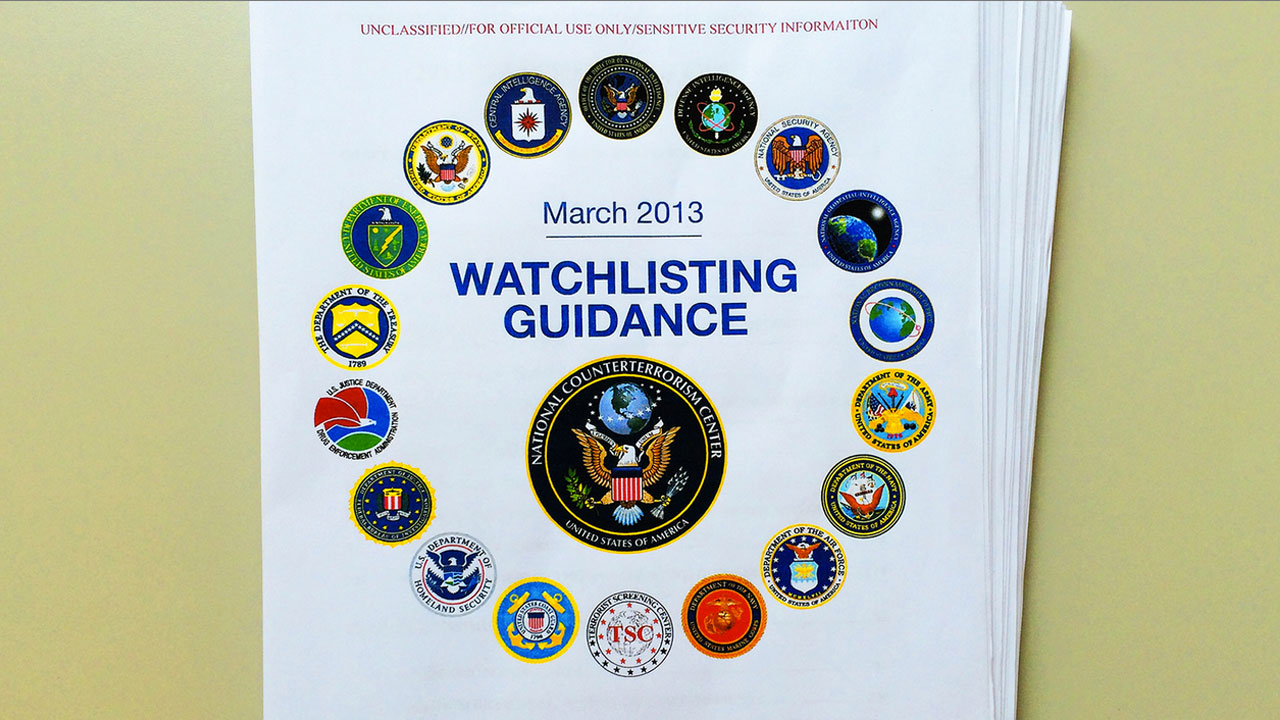The Intercept has obtained a federal document detailing dramatic new U.S policies for categorizing “terrorists” and it’s massive in scope. Did you know that our government has the power to label nearly anyone a terrorist with no “concrete facts” or “irrefutable evidence” necessary? Entire categories of people can be registered as terrorists and placed on the no fly list, which has grown from 16 names to tens of thousands after 9/11.
In a kind of “six degrees of terror” — if you are “suspected of being a suspected terrorist,” or “suspected of associating with people who are suspected of terrorism activity” — the government can place you on a watchlist. “Instead of a watchlist limited to actual, known terrorists, the government has built a vast system based on the unproven and flawed premise that it can predict if a person will commit a terrorist act in the future,” explains the ACLU’s Hina Shamsi.
The regulations for claiming “reasonable suspicion” are incredibly convoluted.
In the chapter on “Minimum Substantive Derogatory Criteria”—even the title is hard to digest—the key sentence on reasonable suspicion offers little clarity:
“To meet the REASONABLE SUSPICION standard, the NOMINATOR, based on the totality of the circumstances, must rely upon articulable intelligence or information which, taken together with rational inferences from those facts, reasonably warrants a determination that an individual is known or suspected to be or has been knowingly engaged in conduct constituting, in preparation for, in aid of, or related to TERRORISM and/or TERRORIST ACTIVITIES.”
The document’s definition of terrorism itself is not what you would expect. Crimes like “destruction of government property and damaging computers used by financial institutions” could lead to a nomination for the list. Then again, since no real evidence is required, details — like what a suspected terrorist is actually accused of — hardly matter.
Unsurprisingly, life is not great for those secretly labeled terrorists. Those on the list are vulnerable to all kinds of punishments and inconveniences inflicted by US and other governments.
Once the U.S. government secretly labels you a terrorist or terrorist suspect, other institutions tend to treat you as one. It can become difficult to get a job (or simply to stay out of jail). It can become burdensome—or impossible—to travel. And routine encounters with law enforcement can turn into ordeals.
And once you’re on the list (which is almost impossible to find out), you’re on for good. Recently, a federal judge “described the government’s secretive removal process as unconstitutional and ‘wholly ineffective.'”
These kind of authoritarian measures are exactly what privacy and human rights activists (and conspiracy theorists) have feared coming to pass in recent years. When combined with what we know about the level of surveillance being conducted by the NSA, it’s clear that the the state has achieved a terrifying level of agency in these realms.
(Image: The Intercept)



